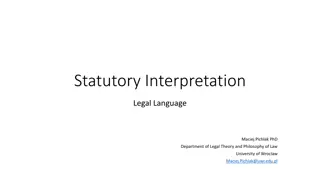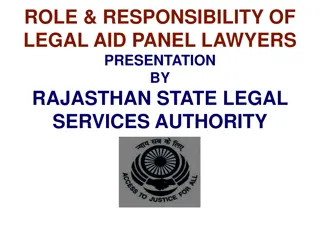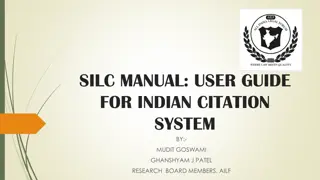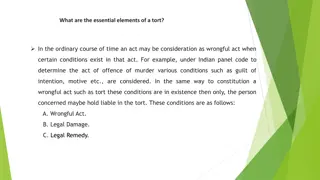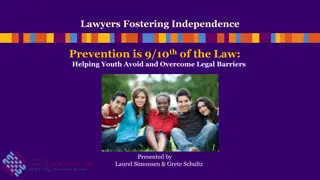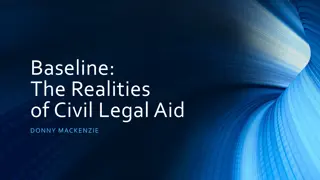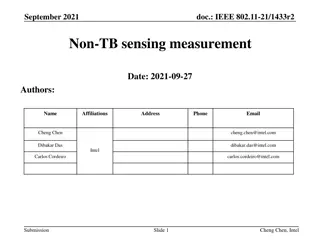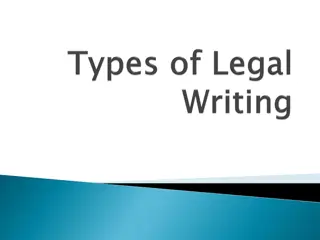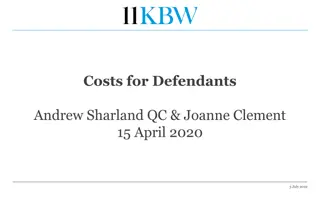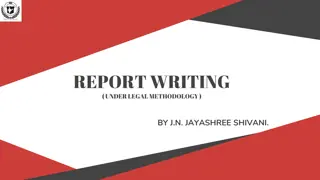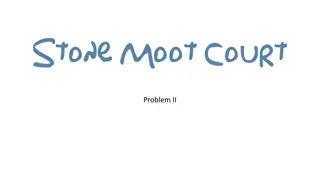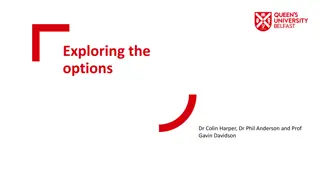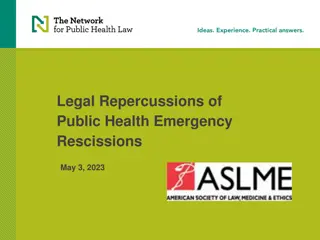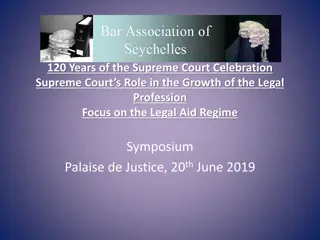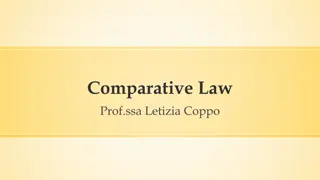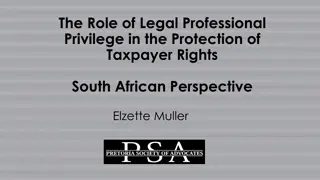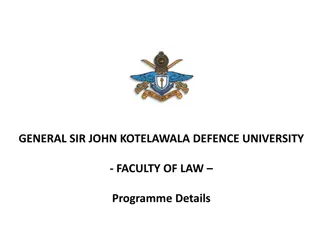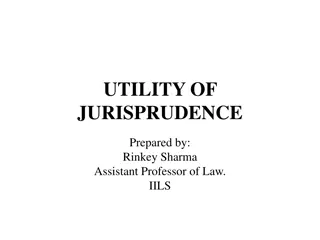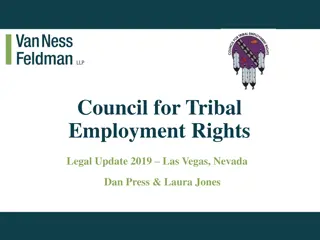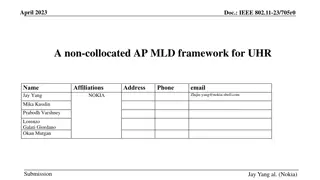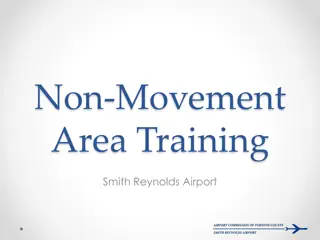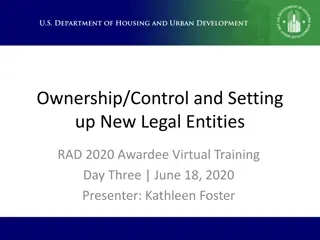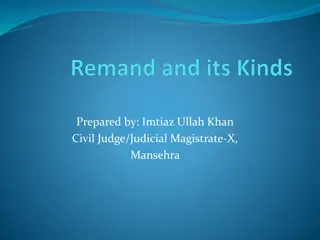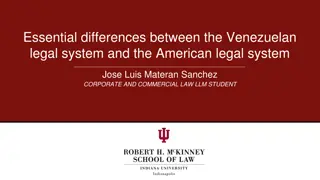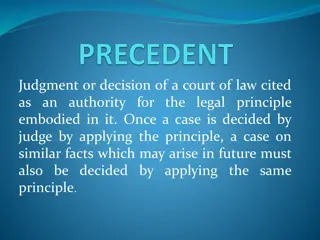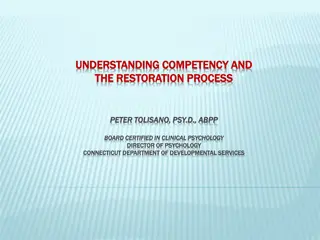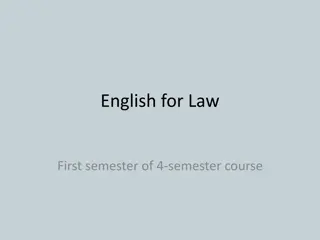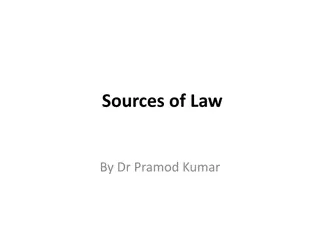Understanding Delegatus Non Potest Delegare in Legal Context
Delegatus non potest delegare, a Latin maxim, signifies that a person delegated with authority cannot further delegate it unless explicitly authorized. This principle is fundamental in administrative and agency law, ensuring trust and accountability in decision-making processes. The maxim was illustrated in the case law of A.K. Roy v. State of Punjab, emphasizing the limitations on sub-delegation of powers. Understanding and applying this maxim is essential in legal frameworks to uphold integrity and prevent unauthorized delegation of authority.
Download Presentation

Please find below an Image/Link to download the presentation.
The content on the website is provided AS IS for your information and personal use only. It may not be sold, licensed, or shared on other websites without obtaining consent from the author. Download presentation by click this link. If you encounter any issues during the download, it is possible that the publisher has removed the file from their server.
E N D
Presentation Transcript
DELEGATUS NON POTEST DELEGARE Presented by: Rinkey Sharma Asst. Prof. of Law IILS
ETYMOLOGICAL MEANING Delegatus non potest delegare is a Latin Maxim. The English meanings of the words are given below. delegatus = delegated non = not potest = can delegare = delegate Thus delegatus non potest delegare means the delegated (person) cannot delegate (further). Another usage of this maxing is delegata potestas non potest delegari. The English meanings of the words are given below. delegata = delegate potestas = power non = not potest = can delegari = delegated Thus delegata potestas non potest delegari means delegated authority cannot be delegated.
MEANING OF DELEGATUS NON POTEST DELEGARE This maxim means that a person to whom an authority or decision-making power has been delegated to from a higher source, cannot, in turn, delegate again to another, unless the original delegation explicitly authorized it. In other words a person to whom some power is delegated cannot sub-delegate that power to someone else. The reason why this principle is followed is very simple. One who has the power or authority from another person to do an act must do it himself or herself as this is a trust or confidence reposed in that person personally. It cannot be assigned to a stranger whose ability and integrity might not be known to the principal.
The maxim is derived from and is most frequently applied in matters relating to principal and agent but it is not confined thereto. it is basic in administrative law, the law relating to discretions conferred by statute . The maxim does not state a rule of law; it is "at most a rule of construction" and in applying it to a statute "there, of course, must be a consideration of the language of the whole enactment and of its purposes and objects .
Example: A has been authorised to execute a will upon the death of the testator. Now A cannot delegate the power to another person to divide the property amongst the heirs when the testator had appointed the authority to execute the will to A . If he does so, he will be delegating an authority which was already delegated to him. Here A cannot sub-delegate his authority as Delegatus delegare applies. non potest
CASES A.K. Roy and anr. v. State of Punjab and anr. AIR 1986 SC 2160, was the first case in India which established the principle that a delegated authority cannot again be delegated as laid down by the maxim delegatus non potest delegare. In this case the validity of sub-delegation of power under the Prevention of FoodAdulteration Act, 1954 was questioned. Section 24(2)(e) of the Act enables the State Government to frame a rule for delegation of powers and functions under the Act, but it clearly does not envisage any sub-delegation. The maxim delegatus non potestdelegare merely indicates that this is not normally allowable but legislature can always provide for sub-delegation of powers. Thus, in other words the principle laid down by the maxim is a general rule but legislature can or the authority making such law can provide for an exception by expressly allowing sub-delegation of powers.
In, Central Talkies Ltd. v. Dwarka Prasad AIR 1961 SC 606, the U.P.(Temporary) Control of Rent and Eviction Act, 1947 provided that no suit shall be filed for the eviction of a tenant without permission either of a District Magistrate or any officer authorized by him to perform any of his functions under the Act. An order granting permission by the Additional District Magistrate to whom the powers were delegated was held valid. Thus, express mention of the delegated powers in the orders plays a key role.
Another illustration of such strict interpretation by the Apex Court is, the case of District Collector Chittoor v. Chittor District Groundnut Traders Association AIR 1989 SC 989 Wherein, the Essential Commodities Act confers rule- making power on the Central Government. The Central Government sub-delegated governments subject to the condition that before making any rules, the State Government would obtain the prior concurrence of the Central Government. The Supreme Court ruled in the instant case that any rule made by a State Government without the concurrence of the Central Government would be ultra vires. The Hon ble Apex Court stated that,"A delegate is not entitled to exercise powers in excess or in contravention of the delegated powers. If any order is issued or framed in excess of the powers delegated to the authorities, such order would be illegal and void this power to the State





